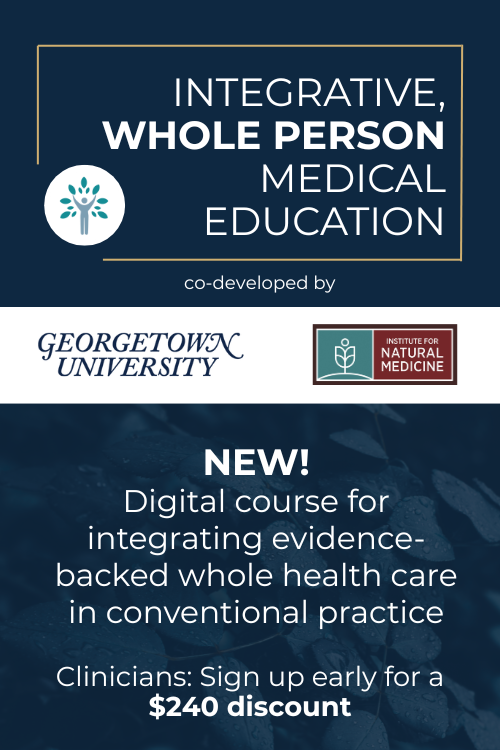Naturopathic doctors (NDs) follow six core principles that guide every aspect of their practice. These principles shape the way NDs view medicine, make clinical decisions, and care for you as a whole person. Among the core values, prevention stands out as a foundational pillar.
Chronic conditions remain the leading causes of death, disability, and rising healthcare costs in the United States. Yet many of these conditions are not inevitable. Research shows that 90 percent of type 2 diabetes, 80 percent of cardiovascular disease, 70 percent of strokes, and 70 percent of colon cancers are potentially preventable through lifestyle changes such as improved nutrition, regular physical activity, stress reduction, and avoiding harmful substances.1Willett WC, Koplan JP, Nugent R, et al. Prevention of chronic disease by means of diet and lifestyle changes. In: Jamison DT, Breman JG, Measham AR, et al., editors. Disease Control Priorities in Developing Countries. 2nd edition. Washington (DC): The International Bank for Reconstruction and Development/The World Bank; 2006. Co-published by Oxford University Press, New York. https://www.ncbi.nlm.nih.gov/books/NBK11795
Prevention is not about quick fixes. It’s about making meaningful, sustainable choices that reduce your risk of disease and improve your quality of life. The right preventive care at the right time can help you stay healthy, delay the onset of illness, and prevent existing conditions from worsening.
Despite its power, preventive care is underused. In the United States, most families access only about half of the recommended preventive services. This gap highlights a missed opportunity to support long-term health and reduce the burden of chronic disease.
Whole person prevention looks beyond symptoms. It considers your lifestyle, genetics, environment, and emotional well-being. That’s why in naturopathic medicine, prevention isn’t just a principle—it’s a promise to help you thrive.
Building optimal health: a whole person approach
NDs go beyond treating disease. They help individuals build and maintain optimal health through a whole person lens, addressing body, mind, and spirit together:
- Exploring genetic and hereditary risk factors
- Assessing lifestyle and environmental exposures
- Identifying early warning signs and intervening before disease develops
- Understanding how social and emotional factors influence well-being
- Offering personalized strategies to restore and maintain balance
NDs are trained to use pharmacological treatments when necessary and may prescribe medications if permitted by state licensure. However, because their focus is on supporting the body’s inherent ability to heal, they start with the gentlest, least toxic, and most evidence-based therapies.
Lifestyle-based, non-drug interventions play a central role in this model of care. These approaches are not only low-risk; they’re also highly effective. A landmark study found that patients who adopted a whole foods, plant-based diet low in fat and refined carbohydrates, combined with moderate exercise, meditation or yoga, and social support, saw an average 40 percent reduction in LDL cholesterol, comparable to the effects of statins.2Ornish D, Scherwitz LW, Billings JH, Brown SE, Gould KL, Merritt TA, Sparler S, Armstrong WT, Ports TA, Kirkeeide RL, Hogeboom C, Brand RJ. Intensive lifestyle changes for reversal of coronary heart disease. JAMA. 1998 Dec 16;280(23):2001-7. Erratum in: JAMA 1999 Apr 21;281(15):1380. https://doi.org/10.1001/jama.280.23.2001
Similar outcomes have been observed in individuals with or at risk for type 2 diabetes. Targeted testing, dietary changes, increased physical activity, and sustained weight loss have been shown to significantly improve blood sugar regulation and reduce long-term complications.
Prevention across the health spectrum
Preventive care goes beyond avoiding disease. For people living with chronic illness or ongoing pain, naturopathic doctors (NDs) provide long-term support to improve quality of life. They use evidence-based natural therapies to reduce symptoms, improve function, and promote healthy aging.
Other integrative providers contribute meaningfully to prevention and whole person wellness. These practitioners bring a unique lens to patient care.
Doctors of Osteopathy (DOs) are fully licensed physicians who combine conventional medical care with a holistic mindset. Many incorporate hands-on treatments and emphasize prevention, lifestyle, and structural balance.
Chiropractors use spinal adjustments and manual therapies to improve musculoskeletal function, relieve pain, and support nervous system health. Many also offer guidance on exercise, posture, and injury prevention.
Registered Dietitians (RDs) help patients understand how food and health go hand in hand. They create personalized nutrition plans to support metabolism, manage chronic conditions, and improve energy and digestion.
Footnotes
- 1Willett WC, Koplan JP, Nugent R, et al. Prevention of chronic disease by means of diet and lifestyle changes. In: Jamison DT, Breman JG, Measham AR, et al., editors. Disease Control Priorities in Developing Countries. 2nd edition. Washington (DC): The International Bank for Reconstruction and Development/The World Bank; 2006. Co-published by Oxford University Press, New York. https://www.ncbi.nlm.nih.gov/books/NBK11795
- 2Ornish D, Scherwitz LW, Billings JH, Brown SE, Gould KL, Merritt TA, Sparler S, Armstrong WT, Ports TA, Kirkeeide RL, Hogeboom C, Brand RJ. Intensive lifestyle changes for reversal of coronary heart disease. JAMA. 1998 Dec 16;280(23):2001-7. Erratum in: JAMA 1999 Apr 21;281(15):1380. https://doi.org/10.1001/jama.280.23.2001







